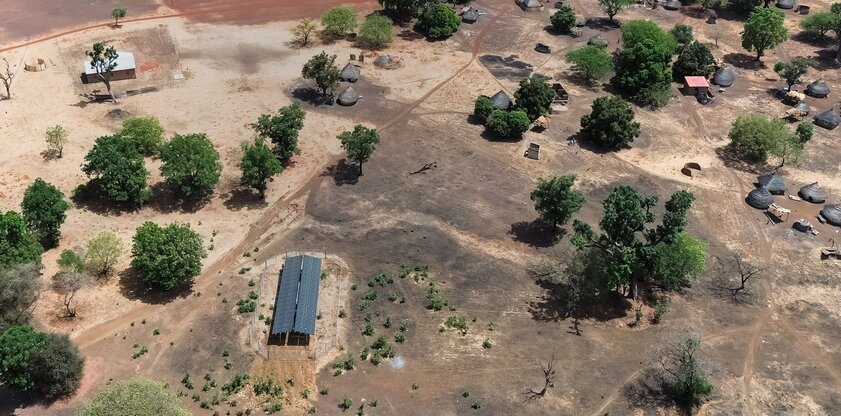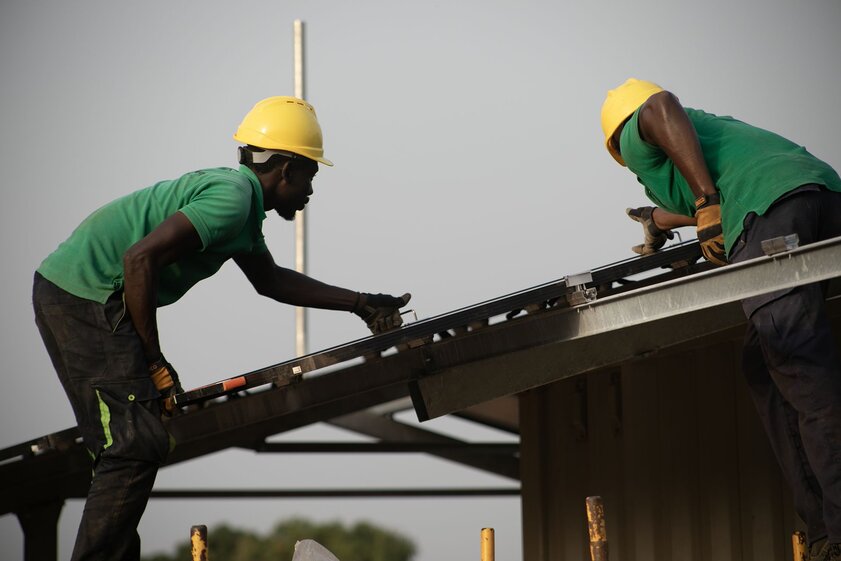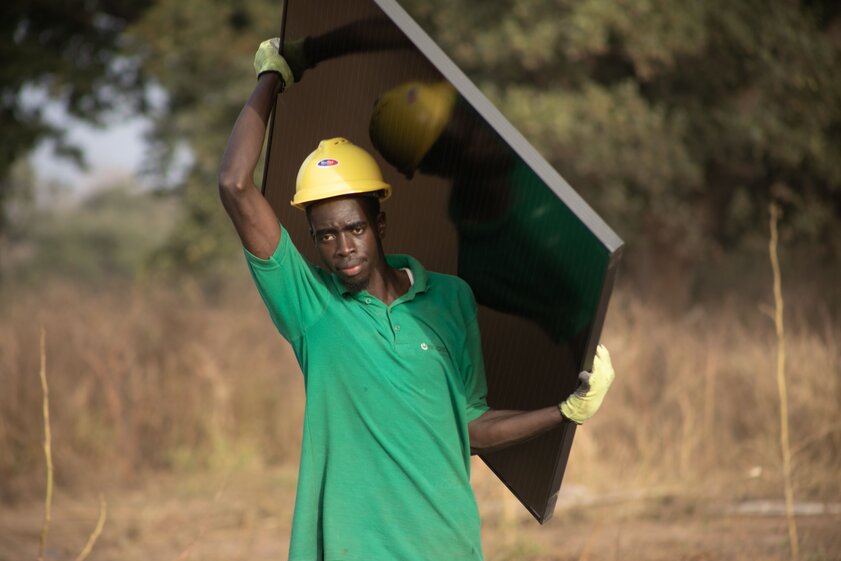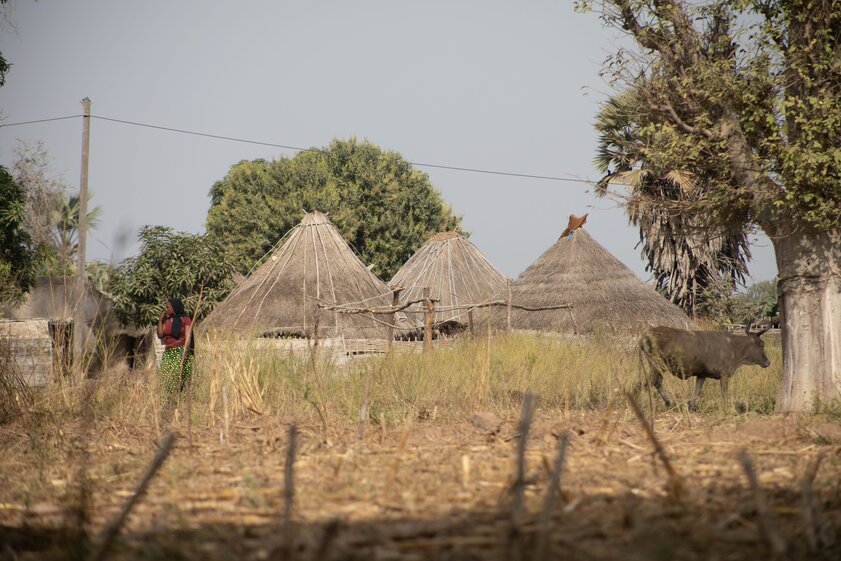Success Stories.
#accesstoenergy
ASER300.
Rural electrification in Senegal.
In the West African country of Senegal, electricity is still scarce for many people, especially in rural areas. Solar-powered mini-grid systems are now set to bring light to the darkness of the villages at night. The ASER300 project will provide hundreds of thousands of rural residents with permanent access to electricity for street lighting, food refrigeration and a better healthcare system.
Since 2020, Off-Grid Europe is part of the ASER300 project that set the target to electrify at least 300 villages in Senegal. Up until today more than 380 villages are being electrified.
Together with ASER (Agence Sénégalaise d‘Électrification Rurale) and GAUFF Engineering, OGE builds and delivers Mini-Grids to rural regions where people don‘t have access to electricity yet. Installation and commissioning of the systems is carried out by Off-Grid Africa.
The Senegalese state is aiming to achieve comprehensive access to electricity for all its citizens by 2025. The majority of this electricity is to be generated from renewable energies. For rural areas in Senegal in particular, electrification is an important step towards sustainable and environmentally friendly economic and social development.
In the ASER300 project, a PV system of 15 up to 90 kWp with LFP battery storage is installed per village. Additionally provided are: Distribution networks comprising a total of around 840 km of lines; 25,000 masts and 3,600 LED lanterns for street lighting; 24,000 house connections including five sockets and five LED lamps in each connected household and further equipment for the productive use of energy, such as refrigerators, water pumps and grain mills.
To achieve this, a number of private and public, German and Senegalese stakeholders were brought together. As a first step, preliminary studies were carried out to determine the exact energy requirements for each village. On this basis, the plans for project implementation and logistics were developed. The actual installation work will then takes place simultaneously in several villages in order to keep to the ambitious schedule.

6 MWp
Installed solar capacity

25 MWh
Installed battery storage

205
Villages electrified
An important part of the project is a training program in which local workers are trained in the installation, operation and maintenance of the systems. This important project with a volume of 120 million euros is being financed by KfW IPEX-Bank while the German government is supporting the project with a credit cover from Euler Hermes.
A total of 195,000 people will benefit from the electricity generated through this project.
Village Massa Dale
In the village Massa Dale in Tamba, Sénégal, people told us that they will use electricity to run a refrigerator, to charge their phones, and to connect a computer in the future. This is only the first step of things that can be done.
Decentralized energy systems can enable change for thousands of people living in rural or remote areas. Making our technology work for the many is the most important thing for us.



